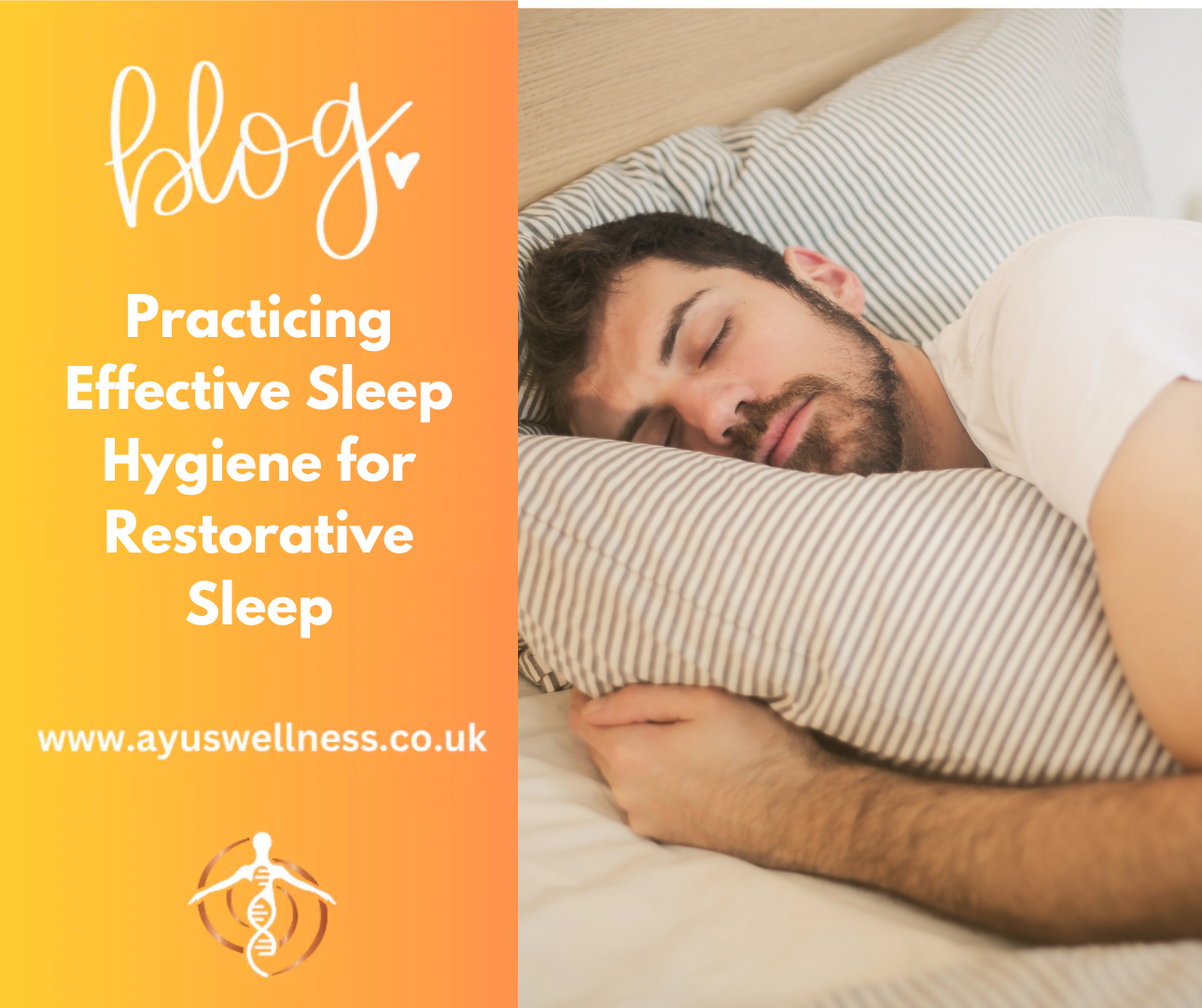
What is Sleep Hygiene?
Sleep hygiene refers to a set of practices and habits that are conducive to sleeping well on a regular basis. These practices involve behaviors during the day and nighttime routines that help prepare your body and mind for sleep, ensuring you get the most restorative rest possible.
The Importance of Sleep Hygiene
Good sleep hygiene is essential for achieving restorative sleep, which in turn supports various aspects of health, including:
- Cognitive Function: Improved memory, concentration, and problem-solving abilities.
- Emotional Well-being: Enhanced mood, reduced stress, and better emotional regulation.
- Physical Health: Stronger immune function, lower risk of chronic diseases, and better overall physical performance.
Tips for Practicing Effective Sleep Hygiene
Here are some practical tips to help you improve your sleep hygiene and achieve restorative sleep:
1. Maintain a Consistent Sleep Schedule
Going to bed and waking up at the same time every day helps regulate your body's internal clock. Consistency reinforces your sleep-wake cycle and makes it easier to fall asleep and wake up naturally.
2. Create a Relaxing Bedtime Routine
Engage in calming activities before bed to signal to your body that it's time to wind down. This can include reading, listening to soothing music, taking a warm bath, or practicing relaxation techniques like deep breathing or meditation.
3. Optimize Your Sleep Environment
Ensure your bedroom is conducive to sleep by keeping it cool, dark, and quiet. Consider using blackout curtains, earplugs, or a white noise machine to eliminate disruptions. Investing in a comfortable mattress and pillows can also make a significant difference.
4. Limit Exposure to Screens
The blue light emitted by phones, tablets, and computers can interfere with your body's production of melatonin, a hormone that regulates sleep. Aim to avoid screens at least an hour before bedtime. If you must use electronic devices, consider using a blue light filter.
5. Watch Your Diet and Caffeine Intake
Avoid heavy meals, caffeine, and alcohol close to bedtime. These substances can disrupt your sleep cycle and prevent you from falling or staying asleep. Opt for a light snack if you're hungry before bed.
6. Stay Active
Regular physical activity can promote better sleep, but try to avoid vigorous exercise close to bedtime. Aim for at least 30 minutes of moderate activity most days of the week, ideally earlier in the day.
7. Manage Stress
High stress levels can negatively impact your sleep quality. Practice stress-reducing techniques such as mindfulness, meditation, or deep breathing exercises to calm your mind before bed.
8. Limit Naps
While napping can be beneficial, long or irregular naps during the day can interfere with nighttime sleep. If you need to nap, try to keep it short (20-30 minutes) and early in the afternoon.
Sample Bedtime Routine for Better Sleep Hygiene
Establishing a bedtime routine can significantly improve your sleep quality. Here’s a sample routine to help you wind down and prepare for restful sleep:
- 8:30 PM: Turn off electronic devices and engage in a calming activity like reading or journaling.
- 9:00 PM: Take a warm bath or shower to relax your muscles and lower your body temperature.
- 9:30 PM: Practice relaxation techniques such as deep breathing, progressive muscle relaxation, or meditation.
- 9:45 PM: Prepare your sleep environment by dimming the lights, setting a comfortable room temperature, and ensuring your bed is comfortable.
- 10:00 PM: Go to bed and aim to fall asleep around the same time every night.
FAQs
Q: How long does it take to see improvements in sleep quality after improving sleep hygiene?
A: It varies from person to person, but many people start to see improvements within a few weeks of consistently practicing good sleep hygiene.
Q: Can poor sleep hygiene lead to chronic sleep disorders?
A: Yes, consistently poor sleep hygiene can contribute to the development of chronic sleep disorders such as insomnia or sleep apnea.
Q: What should I do if sleep problems persist despite practicing good sleep hygiene?
A: If sleep problems persist, it may be helpful to consult a healthcare professional or a sleep specialist. They can provide a thorough evaluation and recommend appropriate treatments or interventions.
Wrapping It Up
Practicing effective sleep hygiene is essential for achieving restorative sleep and maintaining overall health and well-being. By maintaining a consistent sleep schedule, creating a relaxing bedtime routine, optimizing your sleep environment, and managing stress, you can significantly improve your sleep quality. Embrace these tips and strategies to transform your sleep habits and enjoy the benefits of restorative sleep.



